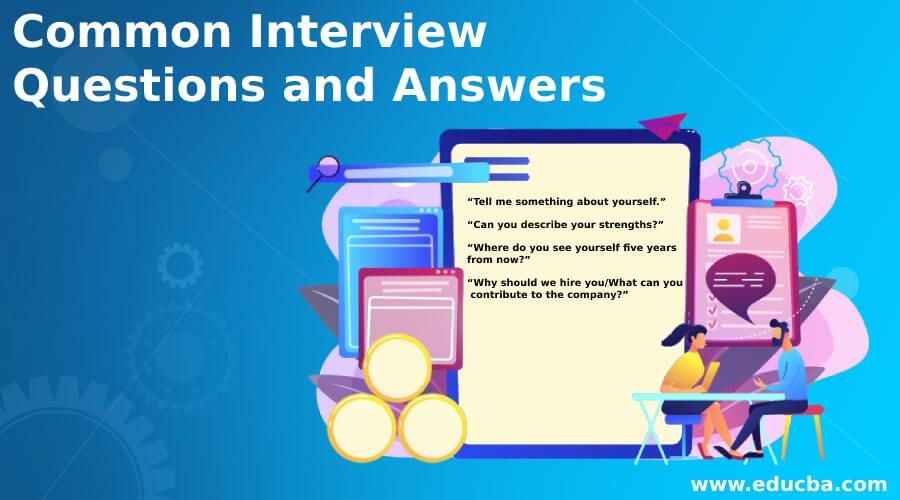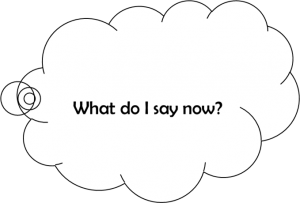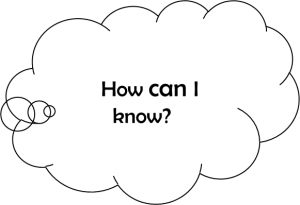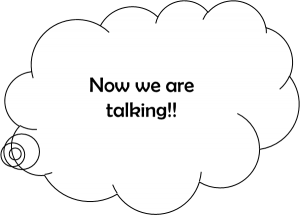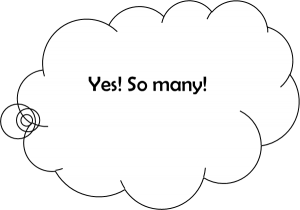“Tell me something about yourself.”
“Can you describe your strengths?”
“Where do you see yourself five years from now?”
“Why should we hire you/What can you contribute to the company?”
Seems familiar? It takes me back to the time when I had prepared myself thoroughly to impress at an interview, but the interviewer had stumped me with unexpected questions. When you came out of the interview feeling you could have done better?
Above are some common interview questions interviewers love shooting at candidates. Though interviews cannot generalize, some common questions are usually asked to test candidate preparedness and self awareness. Common interview questions can categorize into the following;
- That testing knowledge and skill
- Those testing confidence and self image
- That testing candidate willingness and adaptability
- Those who serve as a means of determining compatibility with the workplace culture.
Common Interview Questions testing knowledge and skills will be something like this:
- Can you tell me what you know about ___________________ (your domain knowledge)?
- What is your experience in handling ________________ (technical areas related to your qualifications)?
You must answer these common interview questions confidently, describing what you know with a sprinkling of technical jargon related to your field. Brush up your domain knowledge and leaf through your project reports if you are a just-out-of-college fresher. As an experienced person, you should not be asked too many knowledge-based questions. The common interview questions will be more in the area of the application of your skills. Decide which projects or assignments you will discuss that will successfully showcase your professional acumen.
Common Interview Questions falling in the category of confidence, self-image, and adaptability are usually tricky questions that sound deceptively simple. If you haven’t prepared a well-thought-out answer, these seemingly innocent googlies can knock you out during an interview.
Common Interview Questions before you get face to face:
Let us go through some. (I have given some suggestions on how these can answer satisfactorily.)
Q1.Tell me something about yourself?
But if you think about it, the logic behind this question is simple. Why does anyone ask this question? Do they not have the relevant information already in your Resume?
The interviewer wants to hear how you can describe your profile, focusing on your background, education, work experience, strengths, and unique achievements.
The idea is to test whether you can confidently speak about yourself and successfully market your candidature.
When you begin speaking about yourself, do you know which aspects to focus on and which to leave out? Does the interviewer have an interest in learning about your skills and experiences?
Possible answer:
Before the interview, jot down a suitable answer to this question. Make a summary of your educational background and work experience and a list of your professional achievements and strengths. Include your career objective and goals in your introduction.
When asked this question, summarize your profile, focusing on education and professional achievements. Briefly discuss your family background (not more than two to three sentences, please) and your interests.
Focus on the abilities and qualities relevant to your applied job. Touch upon your career goals. In short, give the interviewer enough fodder for their next questions. (Sometimes, this question is the precursor of all the remaining questions that will ask to test your suitability.)
Do not brag or repeat yourself unnecessarily. Be clear, confident, and sincere, supporting your answer with instances from your professional/college life. Keep your voice tone calm, and take pauses. Speak slowly, or rattle out the answer mechanically. (It should not seem memorized). Do not mention skills or qualities you do not have to impress the interviewer.
Q2.What are your strengths and weaknesses?
When asked this question, Carl became confused. He knew his strengths but could not recall any communication skills from his life. As for weaknesses, he wondered why the interviewer wanted to know what he lacked. Puzzled, he just said he was lazy and had difficulty completing things on time.
It does not take a genius to infer that there were better ways to answer this question. Is the interviewer aiming to unsettle you by inquiring about your weaknesses?
Not. This question is meant to allow you to describe your Unique Selling Points (USPs) in your own words. To give you a chance to impress with your profile and to convince the interviewer of the value you can add to the role you plan to take up.
The weakness part is the tricky one. This is asked to determine if you know your shortcomings and how you plan to tackle them. Self awareness is the key to emotional stability, so this question gauges how far you understand your feelings.
Possible Answer:
Let’s say Rita is a confident young lady, smart at numbers and logical reasoning. She has a sharp and analytical mind. She is quick at problem solving. She’s naturally reticent and deliberates before making a choice. What she needs is proficiency in speaking English.
So what will she say to her interviewer? A likely answer would be:
“My strengths are numerical ability and analytical reasoning. I love handling numbers and am comfortable with facts and figures. I have solved many complex numerical problems in the past. Whenever I am given problems to solve, I am confident in taking them effectively.
When I was in college………..(she gave an example of preparing cost analysis statements and coming up with cost effective solutions for a revenue generation project in college or her neighborhood).
I can improve my oral communication skills, particularly in English. I also need to open up more and improve my decision making skills. For this, I have already started practicing in a support group.”
Notice how Rita touches upon her weaknesses in passing and mentions how she plans to diminish them in the long run.
Such answers show preparedness and self awareness and impress the interviewer suitably.
So you must prepare a list of your strengths beforehand and consider which weakness to mention in the common interview questions. Preparedness is the key to answering this question satisfactorily.
Q3. Why did you choose a particular course or college?
The logic behind asking this question is simple. The interviewer aims to determine how career-minded and focused you are.
Did you do your homework before choosing a college and an educational course, or did you just follow what others were doing or what your parents asked you to do?
Has the decision been a well-thought-out one or one influenced by the course’s glamour or market value? In short, will the course or college help you choose your career?
What you can say:
Before the interview, consider how your college or degree has helped you in your career.
If the college selection or course had been on an ad-hoc basis, find out how this course has helped you equip you with professional skills. Check out the credibility of your alma mater in the job market and suitably adjust your answer.
In other words, if your choice of college or course has helped further your career, cite your research to support your choice.
If, on the other hand, you have not been fortunate enough to study what and where you wanted, and have just acquired a degree, say that you had to join the program due to circumstances and are now planning to upgrade your qualifications.
Whatever the answer, remember never to badmouth your college or faculty. This is not the platform for criticizing your alma mater.
Q4.What are your future plans/Where do you see yourself five years from now?
This question tries to assess the career mindedness of the applicant. These common interview questions aim to evaluate how far you are sorted in planning your career and in setting milestones for yourself.
Of course, the interviewer knows it is impossible to predict the future correctly, but whether you are on the right track is what they want to know.
Possible answer:
Again, you must do your homework to prepare for this. Study the career paths of your desired position, and align these with your career goals.
For example, the possible career progression for the post of “Trainee- HR” would be “HR Officer” or “Training Officer” or “Executive: Recruitment” and such.
Similarly, a “Sales Officer” can hope to progress to “Senior Sales Executive” or “Branch Head – Sales” or such.
So where you see yourself in another five years would be in any of these positions.
Important!!! If you are asked about your career goals, mention those relevant to the company and job you have applied for. Otherwise, you may as well bid goodbye to the opportunity!
Q5.Why should we select you?
Why indeed! Don’t they know that better? Why ask you to brag about yourself?
This question is generally the clincher in the interview. It is keen here whether the role and culture suit. The intention is to see whether you can market your skills and abilities effectively and position your candidature to fit the role.
What you can say:
Do your homework to prepare this answer. List your job-related competencies and relate these to the position you have applied for. Pitch your unique abilities as key to doing the job successfully.
Emphasize your domain knowledge, skills, and managerial abilities without sounding boastful. Give examples from your professional life about instances when you used your powers to succeed.
Mention your soft skills and interpersonal effectiveness in working with people. In short, give them all the reasons to select you.
Q6. What are your salary expectations?
This is a tricky one. Many interviewers ask this question at the end of a successful interview, so at least be assured that you have performed as expected. Now you have to quote a suitable remuneration for your services if you hire.
This inquiry aims to ascertain whether you know your worth in the job market. Salary structures for positions are pre-determined in most organizations, so your answer will hardly influence the interviewer into paying you more or less than the determined package.
Some companies, however, like to keep packages flexible and place you in a wage structure where a certain flexible portion would be performance related. Your compensation package and take-home pay will be determined based on what you propose now.
This question sets the base for further negotiations with the HR Department.
Possible Answer:
Before you go to attend the interview, do some market research on what the position usually is worth.
As I mentioned, most companies already have fixed and flexible salary structures that correspond to employee experience and skills. You will be allotted a particular format and level in the existing hierarchy based on your experience and qualifications.
Ask your college alums or acquaintances holding similar jobs, or look up employment websites. Some job advertisements also mention the base salary, so look these up if they match your position.
Check out the company website to see if they have mentioned their existing management levels and where you fit in. Salary ranges are also mentioned in job postings on the website so that you can check these out.
When you are asked to name a figure, first try to put the ball in the other’s court by saying that you would be willing to be placed at a suitable level per your experience and qualifications. It puts the onus on deciding the compensation structure on the management.
If, however, your answer will determine how much you take home, quote a salary range (your market survey will help you decide this).
If the range is different from what the company offers, the interviewer will tell you that. In that case, be willing to accept a fixed-flexible ratio, where your subsequent performance will somewhat determine your pay.
DO NOT SAY NO OUTRIGHT. Even if you are disappointed by the salary offered, keep a window open for subsequent discussions and negotiations.
Say you need time to think about it, and I will get back.
Q7. Do you have any questions?
At the end of an interview, this question will likely be the concluding chapter. Your interviewer invites you to put your queries forward and clarify any doubts about the position and the company. This question also means you can feel relaxed as your ordeal is over. 😉
What you can ask:
No doubt, several questions are crowding your mind, but obviously, you have to ask only the politically correct ones.
Some of these may be:
- Can I get an idea of the work I will be required to handle?
- Is there any possible relocation in the future?
- What are the career paths available in your organization for this role?
- What are the learning opportunities in this role?
- Will the organization help me maintain a work-life balance?
Please remember, you are NOT to ask about the number of people reporting to you, the name of your future boss, or the benefits you will get in this job. These will become clear to you when you join.
To conclude, I have given you a fair idea of what to expect in a job interview. This list needs to be completed, as there may be several questions in interviews beyond what I have given above. But these common interview questions are, by and large, to be expected.
If you do your groundwork well and keep calm, you will surely nail it!
Recommended Articles
This has been a guide to the list of Common Interview Questions and Answers so that the candidate can crackdown these Common Interview Questions easily. Here in this post, we have studied top Common Interview Questions which are often asked in interviews. You may also look at the following articles to learn more –
